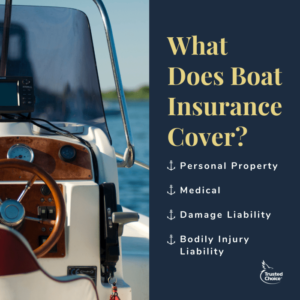
Supplemental insurance for self-employed individuals is a vital safety net that ensures financial stability in unpredictable circumstances. As freelancers and entrepreneurs navigate the complexities of their careers, understanding the various supplemental insurance options available can significantly impact their financial well-being.
From protecting your income against unexpected medical expenses to safeguarding your personal property through various types of insurance, the right supplemental insurance can help mitigate risks that self-employed professionals often face. This overview will explore the importance of supplemental insurance, the types available, and how to choose what’s best for you.
Understanding Supplemental Insurance for Self-Employed Individuals
Supplemental insurance is an essential safety net for self-employed individuals, providing extra financial protection that standard health insurance often does not cover. Unlike traditional employees, self-employed professionals face unique challenges, including fluctuating income and the absence of employer-sponsored benefits. This makes understanding and securing supplemental insurance crucial for maintaining financial stability during unforeseen circumstances.
Supplemental insurance comes in various forms, each designed to cover specific needs and risks that self-employed individuals may encounter. By choosing the right type of supplemental coverage, professionals can safeguard their finances against unexpected events, ensuring they can continue their work without significant disruption. Understanding these options allows self-employed individuals to create a robust financial plan that addresses potential risks effectively.
Types of Supplemental Insurance for Self-Employed Individuals
Exploring the types of supplemental insurance available helps self-employed individuals identify the best options to protect themselves financially. Each type serves a different purpose and can be a valuable addition to a self-employed professional’s insurance portfolio. Below are the main types of supplemental insurance available:
- Disability Insurance: This type of insurance provides income replacement for individuals who are unable to work due to illness or injury. For self-employed people, this coverage is vital, as it ensures they can cover their living expenses in case of a health crisis.
- Critical Illness Insurance: This insurance pays a lump sum benefit if the insured is diagnosed with a serious illness, such as cancer or heart disease. This financial support can cover medical expenses or provide for day-to-day costs during recovery.
- Accident Insurance: This coverage offers benefits for injuries sustained in accidents, including hospital stays or rehabilitation. For self-employed individuals, who may not have the cushion of paid sick leave, this insurance is crucial for mitigating unexpected healthcare costs.
- Health Insurance Supplements: These plans help cover copayments, deductibles, and other out-of-pocket expenses not fully covered by primary health insurance, allowing self-employed professionals to manage health-related costs more effectively.
“Supplemental insurance provides a crucial financial safety net, allowing self-employed individuals to focus on their work without fear of financial ruin due to unexpected health issues.”
Situations Where Supplemental Insurance Mitigates Financial Risks
Supplemental insurance can significantly alleviate financial risks by providing immediate financial support during challenging times. Here are some scenarios where having this coverage proves beneficial:
- Extended Illness: A self-employed graphic designer contracts a severe illness, requiring hospitalization. With disability insurance, they can receive income replacement, allowing them to focus on recovery without worrying about losing their income.
- Serious Injury: A self-employed carpenter suffers a serious injury on the job. Accident insurance helps cover medical bills and rehabilitation costs, ensuring they can return to work without financial distress from unexpected expenses.
- Critical Health Diagnosis: An entrepreneur is diagnosed with a critical illness, such as cancer. Critical illness insurance provides a lump-sum payout that can be used for treatment costs or to cover living expenses while they take time off work.
- Managing Healthcare Costs: A freelance writer has a primary health insurance plan that covers most medical services. However, with high deductibles and copayments, health insurance supplements help bridge the gap, allowing them to access necessary healthcare without financial strain.
Exploring Different Types of Insurance Relevant to Self-Employed Professionals
Self-employed individuals often face unique financial risks and challenges that necessitate a thoughtful approach to insurance. By understanding different types of insurance available, they can safeguard their personal and professional interests while optimizing their financial stability. This section delves into insurance options that hold particular relevance for self-employed professionals, ensuring they are adequately protected.
Pet Insurance Features and Financial Impact
Pet insurance offers significant advantages for self-employed individuals who may rely on their pets for emotional support or companionship. With the unpredictable nature of pet healthcare costs, having insurance can alleviate financial burdens that arise from unexpected medical expenses. Coverage typically includes routine check-ups, emergency care, and surgical procedures, which can accumulate substantial costs.The financial impact of pet insurance for self-employed professionals can be profound.
Consider a scenario where a beloved pet requires emergency surgery costing upwards of $5,000. Without insurance, this unexpected expense could disrupt the financial balance of a self-employed individual. However, with pet insurance, they can potentially pay a fraction of that cost in premiums, significantly easing the strain on their finances. This makes pet insurance not only a wise choice for pet owners but also a strategic financial decision.
Comparison of Supplemental Insurance Options
Understanding various supplemental insurance options available to self-employed individuals aids in making informed decisions tailored to their specific needs. Here is a review of three critical types of supplemental insurance: travel insurance, umbrella insurance, and vision insurance.Travel insurance is essential for self-employed professionals who travel frequently for work. It protects against trip cancellations, lost luggage, and medical emergencies abroad. Umbrella insurance provides an extra layer of liability protection beyond standard insurance policies, which can be particularly beneficial for those with significant assets or potential risks in their professions.
Meanwhile, vision insurance ensures access to necessary eye care, which can lead to better productivity and overall well-being.The following table summarizes key differences and coverage details between these types of supplemental insurance for self-employed persons:
| Type of Insurance | Coverage Details | Benefits |
|---|---|---|
| Travel Insurance | Trip cancellations, medical emergencies, lost baggage | Financial protection for unexpected travel issues |
| Umbrella Insurance | Liability coverage above standard policy limits | Extra protection for personal assets |
| Vision Insurance | Eye exams, glasses, and contact lenses | Supports eye health and productivity |
By evaluating these options, self-employed professionals can establish a robust insurance portfolio that addresses their varied needs, ensuring they remain resilient in the face of life’s uncertainties.
Strategies for Choosing the Right Supplemental Insurance

Selecting the appropriate supplemental insurance as a self-employed individual involves a keen understanding of your unique needs and available options. With a diverse range of coverage types, including travel, umbrella, and vision insurance, it’s essential to navigate the decision-making process thoughtfully. This guide will streamline your choices by outlining effective strategies for evaluating insurance providers and assembling a tailored insurance portfolio.
Evaluating Insurance Providers for Supplemental Insurance
When it comes to choosing an insurance provider, especially for supplemental insurance tailored to self-employed individuals, several evaluation criteria play a crucial role. Prioritizing certain factors ensures that you receive adequate coverage while also securing favorable terms.
- Financial Stability: Research the financial ratings of potential insurers through agencies like A.M. Best or Standard & Poor’s. A stable financial background means the provider can fulfill claims reliably.
- Coverage Options: Assess the range of supplemental insurance products offered. Ensure they align with your specific needs and consider how customizable the plans are.
- Customer Service: Look for feedback regarding clients’ experiences with the insurer’s customer service. High-quality support and easy claims processes are vital for a smooth experience.
- Pricing Structure: Compare premium costs, deductibles, and out-of-pocket expenses. Ensure you understand the pricing model and choose what fits within your budget without compromising coverage.
- Reviews and Recommendations: Seek feedback from fellow self-employed individuals or trusted advisors. Online reviews and testimonials can provide insights into the insurer’s reliability and service quality.
Key Factors in Selecting Travel Insurance, Umbrella Insurance, and Vision Insurance
The selection process for specific types of supplemental insurance, such as travel, umbrella, and vision insurance, requires attention to distinct factors that cater to the nature of each coverage type. Understanding these elements can enhance your decision-making process.
- Travel Insurance: Consider coverage limits for emergency medical expenses, trip cancellations, and lost luggage. Look for policies that provide 24/7 assistance and evaluate the exclusions listed, such as pre-existing conditions.
- Umbrella Insurance: Review the liability coverage limits offered and ensure they are sufficient to protect your assets. Evaluate the underlying policies, as umbrella insurance typically requires existing liability coverage from home or auto insurers.
- Vision Insurance: Examine the benefits for routine eye exams, eyewear allowances, and any discounts on corrective procedures. Check which providers and networks are included and consider the ease of accessing vision care.
Creating a Personal Insurance Portfolio
Building a comprehensive personal insurance portfolio allows self-employed individuals to safeguard against various risks. Including essential supplemental options, such as pet insurance, is vital in ensuring holistic coverage.
- Assessing Personal and Business Needs: Identify coverage gaps in your current insurance policies by evaluating personal and business-related risks. This may include health coverage, liability, and property protection.
- Incorporating Pet Insurance: If you have pets, factor in the costs of veterinary care. Pet insurance can alleviate financial stress from unexpected medical expenses, ensuring you can provide necessary care.
- Diversifying Coverage: Consider bundling insurance policies where possible to enhance protection while benefiting from potential discounts. Diversifying your portfolio can help cover varying risks effectively.
- Regular Review and Adjustment: Regularly assess your insurance portfolio to ensure it evolves alongside your changing needs and circumstances, including income fluctuations or lifestyle changes.
Conclusion

In conclusion, supplemental insurance for self-employed individuals is not just an added expense; it’s an essential part of a comprehensive financial strategy. By carefully considering the various options available and tailoring them to your specific needs, you can ensure that you’re protected against unforeseen challenges, allowing you to focus on growing your business with peace of mind.
Popular Questions
What is supplemental insurance?
Supplemental insurance is additional coverage that provides financial protection beyond what standard insurance policies offer.
Why do self-employed individuals need supplemental insurance?
Self-employed individuals often lack employer-sponsored benefits, making supplemental insurance crucial for covering gaps in health insurance, disability, and other areas.
How can I choose the right supplemental insurance?
Evaluate your specific needs, compare different insurance options, and consider factors such as coverage limits and costs before making a decision.
Is pet insurance a type of supplemental insurance?
Yes, pet insurance is considered supplemental insurance as it helps cover unexpected veterinary expenses, which can be a significant financial burden.
Can I combine different types of supplemental insurance?
Absolutely! Many self-employed individuals create a portfolio that includes various types of supplemental insurance tailored to their unique needs.




